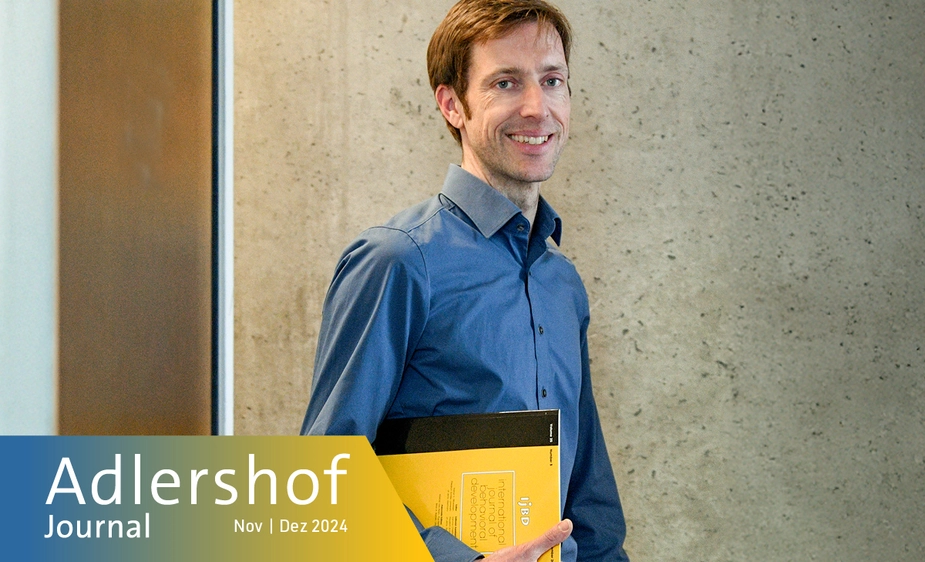Feeling ever younger
Researchers of Berlin’s Humboldt-Universität show: People today feel younger than the generations before them
A glance in the mirror tells us that felt age must not match our chronological age. A 37-year-old suffering from sciatica might exclaim: “I feel like I’m 80!” But how old do 70-year-olds feel whizzing by on racing bikes? We don’t know. This is where research can help. According to recent studies, the racing bike riders likely feel around 58—twelve years younger than their actual age. Psychologist Markus Wettstein and his team at Humboldt-Universität zu Berlin have calculated these and other averages. Their research question: Do people generally feel younger than their age, and has this effect become more pronounced over time? Are older adults today feeling even younger than their counterparts did 10, 20, or 30 years ago?
To answer this, the researchers analysed data from the German Ageing Survey. The survey asks study participants about their felt age and other parameters. “We know that those who feel younger tend to live longer, stay healthier, and report greater well-being as they age,” explains Wettstein. “So, if older adults today feel younger, it’s highly likely they’re also healthier and enjoy a better quality of life.” The results from the data show: This effect does exist. On average, a 40-year-old today feels younger than previous generations did at the same age.
For the study, the developmental psychologist and his team were able to draw from the data of a good 15,000 people. They looked at people born between 1911 and 1974. “Here are few things that we found: If you were 40 in 1956, you felt 35 years old, on average. If you were 40 in 1974, on average, you felt 33 years old. This increasing “felt rejuvenation” can also be found in other age groups. Moreover, while the felt age does, in fact, increase with chronological age, it does so less drastically among more recent generations compared to older ones. In short, we now “feel young” for longer.
But what drives this sense of youthfulness in each new generation? “We controlled for factors like education, illness, and loneliness, but none fully explained this effect.” Increased life expectancy could play a role. “In the past, 80 was considered very old, and people might have felt their age accordingly. With more people living to 100 years old now, 80 doesn’t seem quite as daunting and people may feel less close to the end.”
Narrow-minded, obnoxious know-it-alls, resistant to change—negative stereotypes about age can contribute to how age is felt, animating people to make themselves be younger on the inside. Studies from the United States, for example, show that age stereotypes have grown increasingly negative over the past two-hundred years. “I am not aware of a comparable study in Germany, but, if stereotypes here have also grown more negative, people may feel more pressure to see themselves as younger than they are,” the researcher speculates. The background is that those surveyed wish “to avoid belonging to a group that is perceived negatively”.
Whether negative stereotypes are the root of felt rejuvenation or not—challenging these stereotypes is worthwhile. “The more negatively we think about ageing, the greater the risk of not ageing healthily ourselves: The stereotypes we hold about older people eventually reflect back on us.” People who view later life as a time of declining fitness or learning, for example, might be more likely to stop exercising or trying new things. “Stereotypes can become a form of self-fulfilling prophecy, which is another reason why they should be resisted.”
Aside from negative stereotypes, feeling younger has many advantages—and thus Wettstein advocates a pragmatic approach. “What benefit would there be if people didn’t feel younger than they are? At the end of the day, it might be worse for their well-being and health. So, this self-perception doesn’t really need changing. And is it really wrong if someone says: I feel ten years younger? It’s a subjective feeling and who’s to dispute it?”
Nora Lessing for Adlershof Journal
Markus Wettstein and his colleagues discuss newest study results from the research on images of ageing in the six-part podcast series “Science Update”.
Dr. Markus Wettstein — Department of Psychology of Humboldt-Universität zu Berlin
